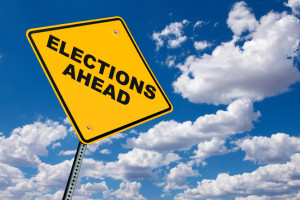 By Steve Brawner
By Steve Brawner
© 2016 by Steve Brawner Communications, Inc.
Voters across this country are being reminded once again this year that, if they live in 39 states including Arkansas, presidential candidates either take their votes for granted or write their votes off.
That’s because we don’t elect presidents by the popular vote but through the Electoral College. Arkansas gets six votes out of the 538 cast, and everyone knows who will win those six – the Republican, in this case Donald Trump. In a Talk Business & Politics-Hendrix College poll published Sept. 22, Trump was trouncing Hillary Clinton, 55-34 percent. But the outcome was obvious long before then.
On Election Night, the Associated Press and the TV networks will call Arkansas for Trump the instant the polls close and then move on to the swing states: Ohio, Pennsylvania, Florida, Colorado, Iowa, Michigan, Nevada, New Hampshire, North Carolina, Virginia and Wisconsin.
If elections were decided by a national popular vote, Arkansans’ votes would go into one big pot to be counted with those from every other state. Instead, those votes go into the Arkansas pot, where the outcome is already known.
This means your individual vote in Arkansas effectively has zero influence on who becomes the next president. So if you cannot abide Trump or Clinton, you are free to join the seven percent of Arkansans who told Talk Business they are voting for someone else.
“Vote your conscience because your vote has no effect anyway” is not exactly a rallying cry for the status quo, and it’s not the only problem with the Electoral College. Because Arkansas is not a swing state, both the Trump and Clinton campaigns made early decisions to waste no resources courting it, and to make no promises that would benefit it.
The Electoral College has numerous other flaws. First, because 48 states are winner-take-all, the loser of the popular vote can be elected president, which has happened four times, most recently in 2000. In fact, it’s possible for a candidate to win the presidency by winning the largest 11 states, even if by narrow margins, while not even appearing on the ballot in the others. Second, because of the way electors are apportioned, Americans living in small states have greater influence than those living in large states. In a country that professes to believe in “one person, one vote,” a Wyoming resident’s vote has four times the weight of a Texan’s, according to the advocacy group FairVote. Third, the winner-take-all system creates a strong incentive for voters to choose the least objectionable major party candidate, making it very difficult for a qualified third party candidate with good ideas to make a dent. Finally, in 21 states, including Arkansas, electors do not have to follow the voters’ wishes. They can vote for whomever they want – and have done so 157 times in American history, according to FairVote.
The Electoral College was created by framers of the Constitution who were skeptical of giving the people too much power. If we were designing our democracy today, there’s no way we would do it this way.
One solution is a nationwide popular vote, but having to count 130 million votes one at a time could be messy and produce unintended consequences. Besides, a government that cannot produce a budget or fight the Zika virus is not going to make this big a change.
So instead of abolishing the Electoral College, why not just make it better? Multiple the number of electoral votes by 10 in each state, giving Arkansas 60 votes instead of six. That way, there would be enough to apportion them according to the results. In Arkansas, Trump would get the 55 percent he’s already getting without trying here, plus whatever else he could earn by actually campaigning, while Clinton would win electoral votes and so could the third party and independent candidates. Meanwhile, Clinton would no longer be assured of winning all of California’s 55 votes. Her total would match the percentage of 550 she earns there.
Also, either make it illegal for electors to vote against the people’s wishes, or, better yet, just get rid of electors entirely and assign electoral votes automatically.
We don’t have to repeal and replace the Electoral College. Let’s just fix it so presidential candidates can’t take anyone’s vote for granted or write anybody’s off. Let’s make every state matter, not just the swing states. All it takes is simple math: Multiply by 10 and divide according to the results.